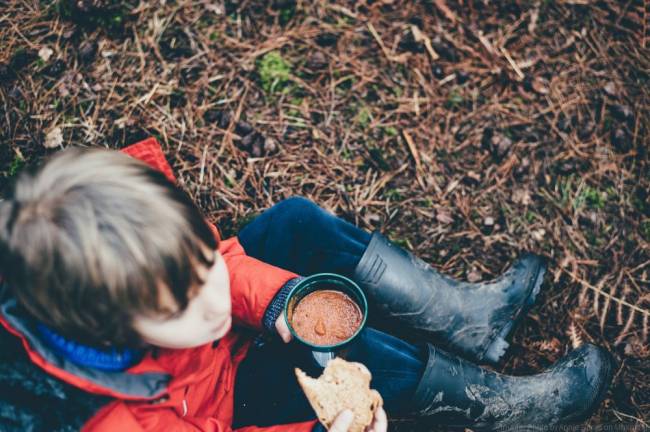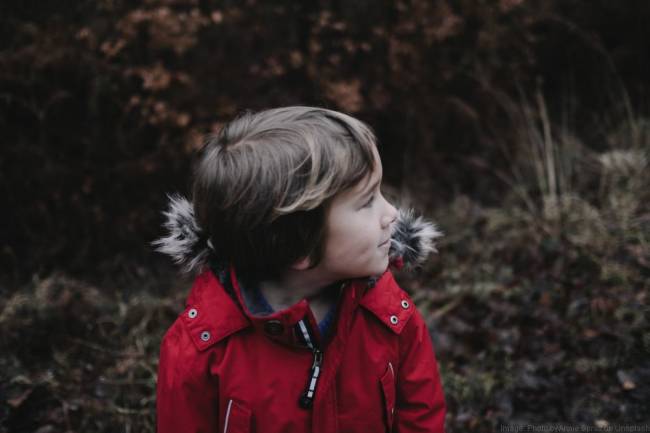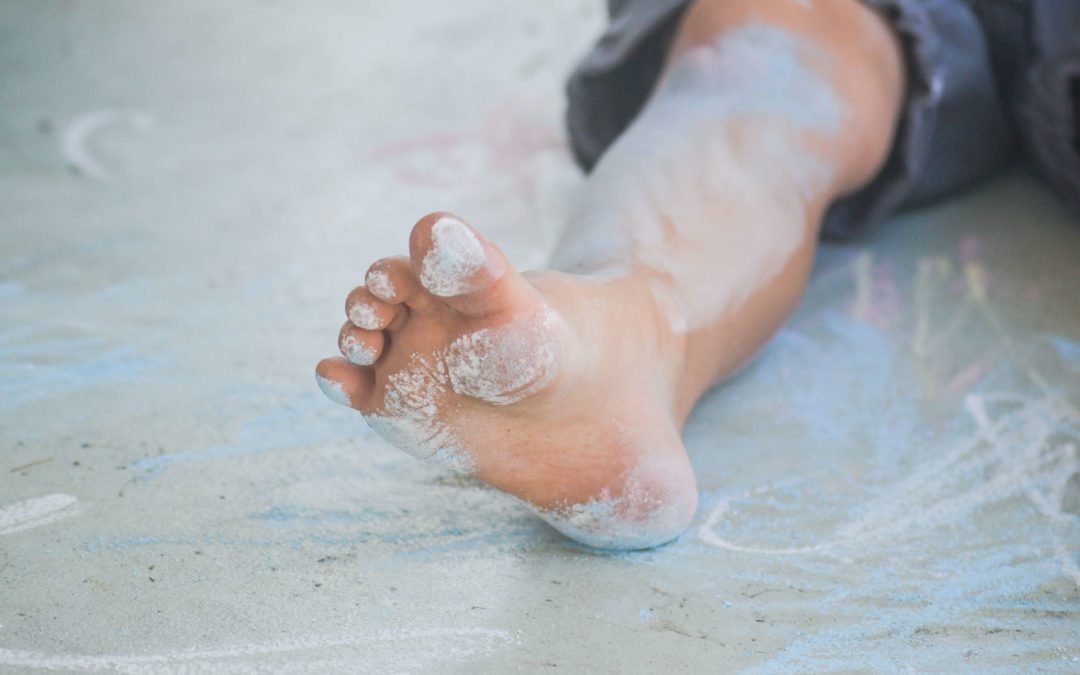Welcome to the age of growing independence, and, dare we mention it, the onward journey towards puberty. Often referred to as the ‘middle childhood’ years, you may start to wonder whether 21st century 6-8 year-olds are actually heading towards the end of their childhood as we remember it

Peer pressure at school begins to rear its ugly head, they take a growing interest in their appearance, are more aware of what’s cool and what’s not. During this era, your kids are building on the important developments made and lessons learned during their first six years of life and should be settling fully into school and striving ahead with lessons and learning. Reading, writing and arithmetic skills are developing constantly, and they’ll be making inroads into deeper and more scientific learning. Six to eight year olds can also communicate better and may start to tell you what they think in no uncertain terms.
But they are still children, so don’t forget that underneath all the bravado and attitude, they still have a long way to go in their physical, emotional, social and educational development. And although it may not seem like it, they’re still heavily dependent on Dad as their guide, supporter, encourager, protector and friend.
Safety first
Safety concerns at this age tend to be an extension of those at ages 4-6. Growing independence and physical ability increases the risk of accidents, so Dads need to continually instruct and help them do things the right – or safe – way.
- Motor vehicle crashes are the most common cause of death from unintentional injury of 6–8 year olds, so ensure they’re safely strapped in and are aware of the dangers when walking to school, playing outdoors or riding their bike. See our article on Child car seat safety.
- Always supervise your children while they’re swimming and teach them early about the dangers of deep water and sea tides and currents. Be close at hand once they start risky activities such as climbing, sledging or skateboarding.
- Keep teaching them about stranger danger issues and what to do if they need help.
- Have a good open relationship with your child, and encourage them to talk to you about anything that’s bothering them.
- Natural curiosity can lead to them investigating potentially harmful items, so make sure household chemicals, sharp tools and matches are kept out of your child’s reach.
- As their computer skills develop, do ensure that parental controls are installed on your home computer. For more details, go to www.child-net.org.
- It’s never too soon to start educating your child on the dangers of the world around them, in a calm, non-sensational way. If a popstar or footballer they admire is in the news for committing drug offences or having an affair, explain why these things are bad, dangerous or hurtful to themselves and other people.
- Remember you are still your child’s chief role model and your attitudes and behaviour will have a bearing on what they believe adults should do and say.
Speech
- Six to eight year olds continue to develop a greater ability to talk about their thoughts and feelings, describe experiences and have a growing understanding about the world around them. They’re developing the art of starting a conversation, can give and understand instructions and are better able to reason and to communicate what they want or need.
- By 6, your child’s pronunciation should be clear, and generally they can communicate well using complex sentences. Between the ages of 7 and 8, their vocabulary will double. That’s often due to them copying what they’ve heard, so expect lots of “My teacher said
- ” and “But Sophie/Charlie says”. And whatever they’ve heard (or misheard) is gospel. Whether it’s blatantly wrong, in their mind, if they’ve heard it from someone else, it’s absolutely, definitely true. It’s also worth remembering, therefore, that they’ll be just as quick to exclaim: “My Daddy says…” So don’t say anything in front of them that you really wouldn’t want them to repeat!
- They will start to argue with you, but try not to get angry, upset or take their comments personally. It’s really key that you can be patient and teach them about reasoning, compromise, seeing the other person’s side of things – and don’t be tempted to give in to shouting or stroppiness. Nobody likes a child (or adult!) who uses foot stamping and yelling to get his or her own way.
Physical changes
- During this time, your kids are likely to lose their baby teeth. Apparently the Tooth Fairy’s going rate is now £1 a tooth – and £2 for the first one in some affluent neighbourhoods. Make sure that your kids are brushing their teeth properly twice a day, sugary snacks are limited and if they have fizzy drinks, it’s with a meal.
- Many children, and especially girls, develop ‘puppy fat’ around this age, which, if they eat healthily and exercise regularly, shouldn’t be anything to worry about. Just stress that it’s their body’s way of getting ready to grow upwards. You may even find some kids showing signs of puberty, with girls as young as eight developing breasts, hips and pubic hair. If this happens, try not to freak out and make sure they’ve had a chat with Mum or another female close to them about periods.
Playing
- At this age, friendships are really important to your son or daughter. You’ll probably find they prefer to play in same-sex groups and girls have one or two best friends, whereas boys play more in a group. Encourage them to talk to you about their friends, and especially if they’ve fallen out with them. Then you can give advice on what they could do to sort the problem out – or, better still, encourage them to come up with their own solution. Click here to see our Friendship Blues film.
- They’re likely to copy their friends’ actions, which may be a good or bad thing. But instead of criticising the friend personally – for example, if your child starts jumping on the furniture ‘because Chloe/Jack does it’, you might be tempted to respond: “Well Chloe/Jack is naughty” – try to explain why the behaviour isn’t acceptable: “I don’t want you to do that because you could hurt yourself or damage the furniture”.
- Rules are very important to them and their creative play might involve complex instructions about what they’re going to do and how they’ll do it.
- Around this time, they may attend or host a sleepover, but don’t be alarmed if their first one doesn’t go too well. Click here for our Sleepover Tips.
- They’re becoming more adept at fiddly tasks such as cutting and model building, but may need a little help to finish something or handle the difficult bits. But, Dads, do remember whose toy or project it is – don’t take over completely!
- At school, they’ll be doing lots of number work, so back that up by encouraging them to add up the cost of items when you’re shopping together, and work out how much change they’ll get; counting out sweets or strawberries so that everyone gets an equal share; doubling up quantities on a recipe; working out how many stops you’ve got to go on the bus or train until you reach your destination. Don’t get exasperated if they get it wrong, and always try to make it fun.
- Get involved with their school so you’ve got some idea of what their learning goals are and how you can help them develop. Plan fun activities to build on what they’re learning, like visits to museums, castles and country parks, and conduct some (safe!) scientific experiments at home – www.sciencemuseum.org has a range of educational games and our Fun for Dads and Kids section has loads of great ideas for family fun.
- By 7 they should be reading confidently, so encourage them to read to you but also continue to read harder books to them. They may enjoy writing or acting out their own stories. Try not to tell them what you think should happen, and praise their work.
- School-age children often want to get involved in more grown-up hobbies like taking photographs with a proper camera, starting a collection, making real jewellery or learning magic tricks. They tend to have longer attention spans and are happier to persevere until a project is completed.
- Exercise is still vital for their physical health, and it’s also been proved that physically active children tend to mature more quickly than sedentary ones. Help them develop their physical skills by building on activities, such as dribbling a football or kicking into a goal, throwing a ball into a hoop or magnetic darts at a target, following an aerobics DVD, hitting a ball with a large racquet, cycling without stabilisers, jumping over a rope or trying limbo dancing, kite flying or hop scotch.
- Now’s also a good time to encourage extra-curricular school and community activities, such as dance, karate, football or music lessons. They’ll meet other kids, develop new skills and start learning about being part of a team, which will help them to work alongside children in the classroom or join in playground games.
Emotional development
- This is a key time for your children to develop confidence – in their schoolwork, with their friends, within your family circle and through their skills and hobbies. They really want to perform well, obey the rules and do things correctly – and therefore find it hard to handle failure or criticism. They also tend to boast and show off about their successes and talents and may belittle their friends’ achievements. If they want to share something they’ve done with you, show a real interest and when they’re explaining how they do something, don’t jump in to say “Yes, I know that” or “No, that’s not right”. Try hard to be patient, positive, supportive, gentle with any criticism and keep giving them lots of affection. See our article on The Power of Words.
- Six to eight year olds still like predictable routines and clear guidelines. They draw security from spending time and being close with adults they care about, so give them as much time as you can. It’ll build their confidence and strengthen your relationship with them, which is so key in the lead-up to puberty. See our articles: Why do Dad’s matter to sons? and Why do Dads matter to daughters? for more info.
- As they understand more about the huge world around them, they’ll develop a stronger sense of right and wrong, and fairness becomes a big issue for 6 to 8 year olds. Everything has to be equal from the number of sweets shared out, to whose turn it is to have a bedtime story with Dad. Obviously parents all aim to be fair but be prepared for the familiar refrain of “It’s not fair!”
- By now, they’ve got a growing understanding about the future and also that actions have consequences, so talk to them in a more grown-up way about what they’re looking forward to, or ask them what might happen if they do or don’t do something. Give them a chance to choose what film to watch, what to have for tea or where to go on an afternoon out. And encourage them to try different ways of doing things.
- This age group also understand more about other people’s feelings – although they still veer towards being self centred, so continue to encourage them to respect others, show self-control and help those who are less fortunate than they are.
- They continue to respond well to clear, simple guidelines and you may be able to adapt your family rules to reflect their growing independence – and responsibility. However, make sure that they don’t just hear the bits they want to hear – eg Bedtime is extended to 7.45pm, but only if they’re ready in their pyjamas with their teeth cleaned by 7.30pm. Or they can have a friend over for tea on Friday as long as they tidy up their bedroom during the week.
- Similarly, they’re able (and should be encouraged) to help out with family chores: making their beds, putting clothes away, tidying up toys, putting recycling in the bin, washing and drying up, preparing snacks and helping with cooking, getting their school bag ready, sweeping and mopping the floor, dusting and vacuuming, laying and clearing the table – although maybe not all in one evening! It’s also a great age to involve them with basic DIY, gardening and more advanced food preparation tasks.
- At 7, your child may have their first SATs as part of the National Curriculum but it’s really important not to pressurise or alarm your child. You could tell them that it’s a kind of survey to see what children are doing in different schools.
- Around this age they start to get embarrassed about lots of things – and especially by Dad’s behaviour in public or in front of their mates. They may also be more conscious about their body and choose to bathe or dress in private. Girls will want to use female toilets and changing rooms, so make sure they know where to meet you afterwards.
- It’s often difficult to know how and when to start giving your child more freedom and responsibility, but you can’t wrap them up in cotton wool forever. Perhaps you could start by staying near the shop entrance while you send them inside to find and pay for one item, or watch them as they walk down the road to a friend’s house, and gradually expand what they are allowed to do on their own.
Tantrums
For most parents, this is a calmer time in your child’s development, as they become more capable of dealing with their emotions and understanding the consequences of their actions – and other people’s. However, it’s always worth remembering that good behaviour should be praised, significant achievements rewarded and to deal with any outbursts consistently and fairly.
Your child’s Middle Childhood years are a great building block in their development, and I hope we’ve shared some ways to help you really enjoy this time. See you at 8–11 years!










